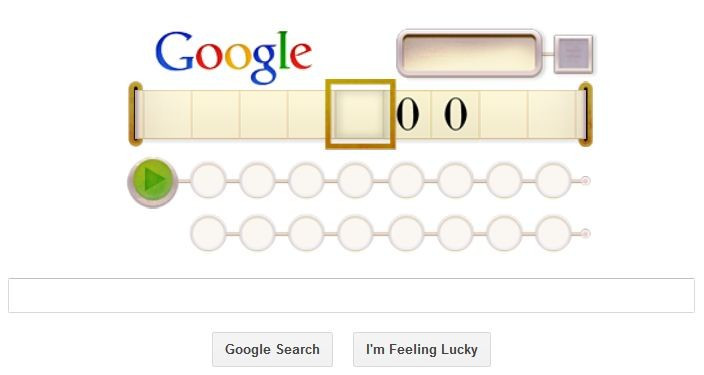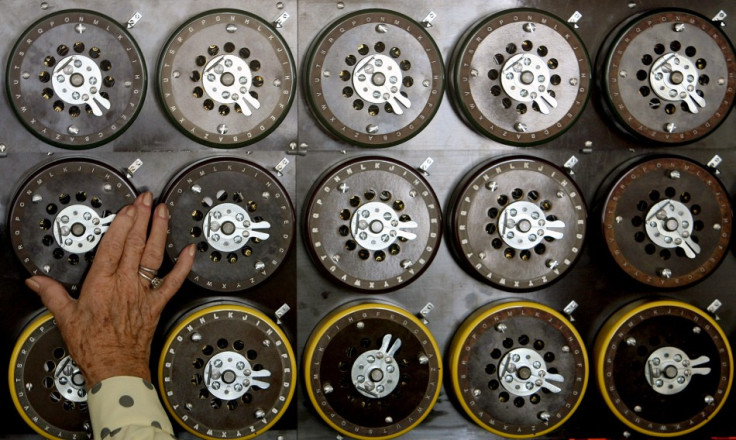Alan Turing: Google Doodle Honours Codebreaker's 100th Birth Anniversary [VIDEO]
Turing Bombe machine helped the cryptographers to decode over 3000 enemy messages a day created by German military Enigma machine during World War Two.

Google Doodle has come up with an interactive video on Alan Turing's 100<sup>th birth anniversary to honour the gifted British mathematician, logician, computer scientist and code breaker.
Google's virtual version of the Turing Machine, conceptualised by Turing in 1936, that helps explain how a CPU thinks in binary, ie, 1s and 0s.
The Google Doodle with a series of 1s and 0s and arrows pointing to left and right is a difficult one for those who are not a computer science geek.
As Mashable puts it, the aim of the game is to spell out "Google in binary" by matching numbers on the tape to the numbers in the upper right box.
The task involves six steps to be performed successfully and with each successful step, one letter of the Google logo gets filled with colour. After completing it the first time, one can play it again at a more difficult level.
"We first had the idea to celebrate Turing more than a year ago but decided to wait for his 100th to do something complex," said Sophia Foster-Dimino, an artist on the Doodle team. "As one of the fathers of computer science, we thought he was a really fitting person to celebrate."
Turing, an extraordinarily genius, had contributed to the development of computer science in a big way by formalising the concepts of algorithm and computation with the Turing Machine, which played a major role in the creation of the modern computer.
Turing is widely praised for cracking the German Enigma secret codes by creating early computers such as bombe that helped Allies to track and destroy the German military and naval units.

Turing had to face the criminal prosecution because of his sexual orientation, just a couple of years before his death.
He was arrested and charged with "acts of gross indecency" for having a relationship with one of his technicians at the Manchester University, where he worked.
He agreed to undergo chemical castration in order to escape prison and was subjected to years of oestrogen treatment.
"While his wartime code-breaking saved thousands of lives, his own life was destroyed when he was convicted for homosexuality," Google UK Engineering Director Andrew Eland wrote in a blog post. "But the tragedy of his story should not overshadow his legacy. Turing's insight laid the foundations of the computer age. It's no exaggeration to say he's a founding father of every computer and Internet company today."
Though there were several conspiracy theories surrounding his death, he was widely believed to have committed suicide by consuming poison.
Turing was found dead in his bed in 1954, when he was just 41.
To honour the genius' 100th birth anniversary, London's Science Museum is opening a year-long exhibition called Codebreaker: Alan Turing's Life and Legacy.
© Copyright IBTimes 2025. All rights reserved.





















